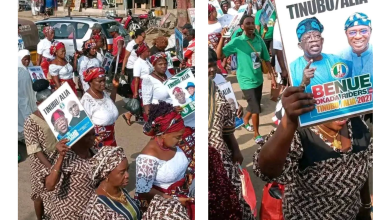
Nigeria is home to about 200 million people with over 48 per cent of this population living in the urban areas.
With rapid urbanization and a slow upgrade of cities infrastructure, addition/construction of new infrastructure to provide social services coupled with high cost of living, high cost of decent accommodation, many urban dwellers find themselves living in slums and unplanned settlements.
The United Nations Human Settlements Programme (UNHS) defines a slum as a wide range of low-income settlements and/or poor human living conditions, which include the vast informal settlements that are quickly becoming the most visual expression of urban poverty.
Urban slum dwellers across many cities of Nigeria are marginalised and deprived of essential basic social facilities and are faced with poor living conditions due to population density, overcrowding, unemployment, poverty, lack of drinking water, inadequate liquid and solid waste management, noise pollution, poor health care access, poor structural quality of housing, cultural dislocation and lack of tenure security. Nigeria has over 5 million people living in slums (UN-Habitat).
With the spread of Covid-19 pandemic and the attendant death recorded, medical experts have advised everyone to improve on their personal hygiene, practice regular hand washing with soap and/or sanitizer, practice social distancing and in more severe cases self-isolate.
Within slum communities, houses are densely packed with little or no space for ventilation, many slum dwellers do not have access to portable water and live in small rooms with an average family size of 6. Drainage systems in this areas are almost non-existent posing serious sanitation concerns.
According to a research conducted by Hipcity Innovation Centre in Abuja urban slum community in 2018, the average slum family survive on less than 2000 naira (less than 8 Dollars) daily and depend on daily business transactions (subsistence business) for their daily survival with little or no savings. Many in these communities practice open defecation or patronise community public toilet operators for a fee which is why these communities are vulnerable to disease spread at quick pace.
With exigent measures required to limit the spread of Covid-19, and the restrictions against large gatherings placed by government, livelihoods of these families will be lost, what palliatives are put in place to provide food and other essentials to these highly vulnerable sect of our population?
Slums And Public Health Information
Many slum dwellers provide services to many affluent households such as gardening, cooking, driving, care-giving and other domestic services which also exposes them to the virus in the event that their employers are infected, how do they identify one with corona virus symptoms and what actions to take as they rarely have time within the day to listen to radio or watch TV and many are not social media savvy.
While emphasis is placed at checkmating the spread at airports, we are not oblivious that government have advised all who travelled out of the country in the last one month to self-isolate, the question begging for answer is, in the event where these individuals exhibit symptoms are caregivers well informed of what to do; else they get infected and take it back home.
RELATED: The Monstrous Claws of Covid-19
It is expedient that the National Orientation Agency (NOA) become proactive, put machineries in place to inform slum dwellers what COVID-19 is and what actions is required of them to take in the likelihood of an infection or suspicion.
In some parts of the world, like Ireland and North Korea, communal infection is increasing and we cannot risk having our slum population infected, the aftermath effect is better imagined.
Government must ensure as a matter of urgency that primary health care centres are stationed and operational in these slum communities to respond abruptly to anyone showing symptoms. Once again, NOA must rise to the occasion.
Dangers Of Covid-19 Pandemic In Slums And The Implications On The General Public
Many Nigerians depend on retail marketers, food vendors, public transport among others etc for their daily needs and a large majority of these people live in slums and informal settlements, if these people are not informed and palliatives put in place to reduce the economic burden (example: buying hand sanitizers) the general public who transact businesses with them are also at risk if they become infected.
Imagine if over 1000 cases are reported in a single slum, Nigeria will be overwhelmed and our health facilities and staff overstretched.
Sanitizing Slum Communities
Slums are known as breeding grounds for spread of diseases such as tuberculosis, hepatitis, dengue, pneumonia, malaria, cholera and diarrheal diseases. Besides, urban slum dwellers are at a high risk of non-communicable diseases such as asthma, heart disease, diabetes due to their environmental conditions and reports have shown that people with medical conditions such as diabetes, respiratory illnesses are at high risk, therefore government at Federal and State level must immediately identify slum communities and begin community disinfection activity to curb the spread of the Covid-19 virus and any other virus of public health interest.
In summary, Covid-19 poses great impacts on the socio-economic well-being of slum dwellers and government must understand the peculiarities of these people and also the importance not to allow Covid-19 spread in any slum community as the effects will be more than catastrophic.
National Orientation Agency must begin proactive sensitization and awareness campaigns in slums to educate and inform the people what is expected of them in situations of emergency to curb the Covid-19 spread in their domains.
Primary health care systems must be activated and stationed across slum communities for quick response to anyone showing possible Covid-19 symptoms.
Palliatives such as dry food, hand sanitizers, tissue paper, nose masks should be provided for every household if they must practise social distancing (which is near impossible) as these people live closely knitted to each other.
Measures to decongest slums within this period should be given priority to inhibit communal spread of Covid-19.
– Mr. Bassey Bassey is the Executive Director- HipCity Innovation Centre-Abuja, 07034520685




